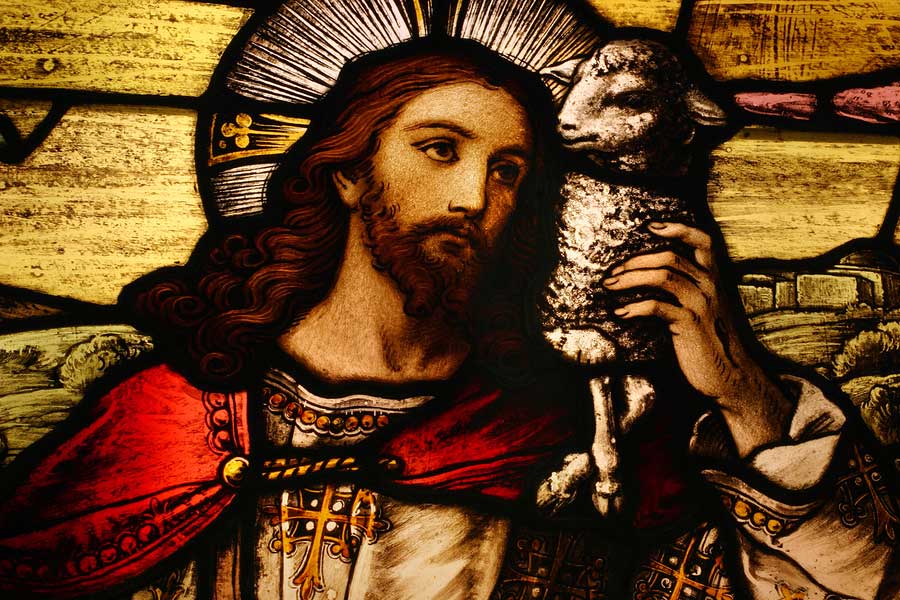The idea of sin is predicated upon a dualistic view of the world, wherein acts are objectively good or bad. Justice in the dualist paradigm would require that the sinner is punished for their own sins…. But Christianity and any sacrificial religion puts sins on the head of a proxy – whether a bull, a lamb, a human, or something of value.
Christians believe Jesus died in lieu of all of mankind’s sins. I have a couple ideas on what the death of Jesus meant, and also what phrases like, “He died for our sins,” or “He died for our sakes,” could mean.
There is Jesus the man, and there is Jesus the representation/avatar of the Christ – which is the life imbuing soul – that which enlivens – Life.
Jesus the man was murdered, accused of blasphemy and treason.
I theorize that there is a very non-mystical, non-mysterious explanation for the phrase “Jesus died for our sakes.”
It could mean, simply, that Jesus died because of our actions; “our” referring to the people from which the writer hails, or “our” as in humanity. Jesus died because of what others did to him, because of the hatred of others, their envy, their ignorance, or whatever it was that triggered their antipathy or hatred toward him.
Jesus is the representation, or the metaphor by which we can visualize and comprehend the mystery of life and death…. That metaphor is more magically charged with meaning than a mere execution.
If life must die for another to live; and Christ is life, then Christ must die for us to live. Using the lamb as a metaphor, it must die in order to be eaten and to nourish the life in us. This is a justice not predicated on punishment, but a balance of the scale between life and death. This justice is not a punishment to the lamb or to the person. The lamb is of course innocent of any crime… making its sacrifice so sacred. We should honor what we put into our bodies to sustain ourselves.
If the sacrifice of the lamb is to cover the “original sin,” and the sacrifice is really the death of one living being to give life to another living being, then the “original sin” of Adam in this context is to eat – to eat in order to survive – to be mortal is the original sin or at least to take part in the sin.
If we remain in a dualistic frame of mind, then all death must be called evil. But instinct, had even by a child, knows that one must die for another to live.
The grass dies to feed the sheep. The sheep die to feed man. Is a sheep then guilty of evil in the sight of God because it has taken the life of grass?
If we see instead that life and death are one… That for Christ to live, Christ must die… then we see that Adam/Man is forgiven their mortal sin, because man never committed a sin in the first place, rather man does what must be done in order to live. Adam never had a choice apart from choosing to live or to die. Where there is no choice, there is no sin. Man only does as the law requires him to do.
My brother sent me a quote the other day. I forget the exact phrase, but it said something like, “To transcend the duality of good and evil is to partake of the Tree of Life.”
If a man is caught in duality, the guilt of living could drive a man to constant sorrow. The guilt of the sins of being mortal will never end. Guilt for every lamb, every calf, every chicken one devours, slays for sustenance.
If Adam’s only choices are to live or to die, and to live he must kill… and if he considers killing a sin worthy of death… and Adam seeks to do only “good,” never harming or killing… then his only choice, to refrain from “evil,” is to die. If it is evil to kill something else, then it must be equally evil to kill oneself by neglecting your own mortal needs. Thus the paradox of sin and sacrifice… that the sin and the sacrifice are inextricably linked, they are one and the same. As soon as man exists, a sacrifice is required. As soon as one breathes life, death must follow.
To seek holiness, then, is not to avoid the sacrifice, not to sidestep the necessary pains of life, but to transcend the good and evil, to be grateful to God both that the lamb lived, and that it dies for you, and most of all to be grateful to be alive…. Then a man can find peace, a man can be freed from the guilt of inescapable mortal needs.
In this way, the sacrifice of Christ frees us from death and gives us life…. And also we are freed from the illusion of good and evil, recognizing that to partake of death is to eat from the Tree of Life…. This is the mechanism by which life sustains itself indefinitely – a sacrifice that never ends, an eternal sacrifice – Life giving itself freely to life in an everlasting cycle of justice and grace.
